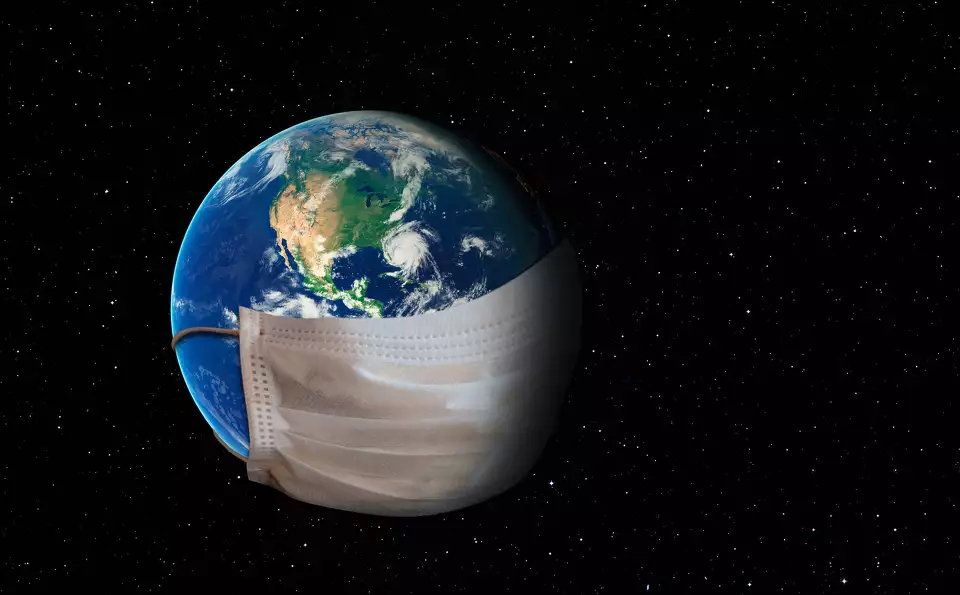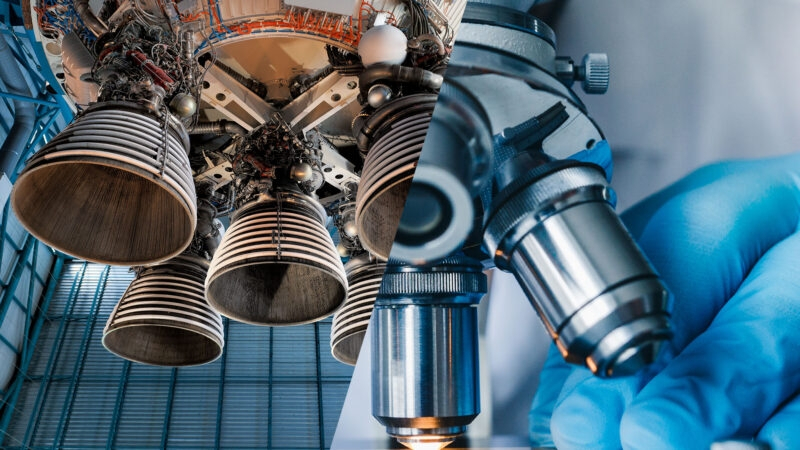NASA is set to offer its response to that hard-hitting report issued last September by the Mars Sample Return Independent Review Board, including the rolling out of next steps for the program.
On Monday (April 15), NASA shared the agency’s recommendations regarding a path forward for the costly Mars Sample Return initiative, but within a balanced overall science program. Indeed, such an enterprise has long been a major goal of international planetary exploration for the past two decades.
The quest to bring samples back to Earth from Mars has been met with controversy in some quarters as the threat that ecologically-hungry Martian microbes might pose to our biosphere continues to be a topic of concern.
Space bugs
The Houston Chronicle published an opinion piece on April 11 titled “Is the U.S. ready for extraterrestrials? Not if they’re microbes. How to defend Earth from space bugs.”
Under the rubric of the Bipartisan Commission on Biodefense, former Democratic Congresswoman Donna Shalala and Susan Brooks, a former U.S. Attorney and Republican Congresswoman. Together they serve on the Bipartisan Commission on Biodefense.
Donna Shalala served as Secretary for Health and Human Services in the Clinton Administration. Brooks served parts of Indiana.
The Bipartisan Commission on Biodefense is a privately funded entity established in 2014, set up to evaluate the status of U.S. biodefense efforts and issues recommendations to produce meaningful change.
Unforeseen dangers

“Space exploration provides some of the greatest challenges and opportunities of our time. But as we venture further into the unknown, we also expose ourselves to new and previously unforeseen dangers,” Shalala and Brooks wrote in the op-ed.
While many debate the possibility of advanced, intelligent life elsewhere, few consider the probability of non-intelligent alien microorganisms. These life forms could exist on other planets or moons, hitchhike on spacecraft, or move through the universe in the asteroids they inhabit.
They could also be Earth microbes that mutate or evolve in response to the stress of spaceflight, becoming more virulent, resistant, or invasive. Either would seriously threaten the public health, safety, and security of humans, animals, and plants operating in space or living on Earth,” they noted.
Labeling it “Astrobiodefense,” as they term it, is an expression anchored in the defense against biological threats in space and on Earth that result from space exploration.
Neither hypothetical nor fictional

There are two goals, Shalala and Brooks point out: to prevent the contamination of extraterrestrial environments with Earth organisms; and to prevent extraterrestrial or mutated terrestrial microbes from harming Earth’s inhabitants.
“As fantastical as it may sound, astrobiodefense is neither hypothetical nor fictional,” they observe, calling for urgent attention and action.
“For the United States, NASA has already started programs to prevent forward and backward contamination, ensure the health and safety of astronauts, and identify and control biological hazards. The FAA [Federal Aviation Administration] is also responsible for monitoring the payloads of commercial spaceflight and how they might affect public health.”
But now, they write, given more missions into space, the potential dangers are mounting.
Wanted: coordination and collaboration
“Recent missions, for example, brought specimens back from asteroid Bennu and aimed to drop human remains on the moon. We need to do more and soon,” they add.
Shalala and Brooks state that the U.S. needs to invest in research and development of new technologies and medical countermeasures to detect, diagnose, treat, and prevent diseases in space and on Earth.
Furthermore, there is need to enhance our bio-surveillance and symptom monitoring to track and analyze space-related biological threats in real time.
“We need to strengthen our coordination and collaboration between agencies and partners, both nationally and internationally,” they continue, “to share information and resources without compromising the kinds of competition that result in scientific advances and economic gains.”
Perils of the unknown
Additionally, they observe, there is need for more than modest, and fluctuating, budgets, a wing, and a prayer. “More policymakers and decision-makers in Washington need to understand the importance and benefits of astrobiodefense in particular and the space program in general.”
In closing, Brooks and Shalala state in our pursuit of promise, “we have a duty to protect ourselves and our planet from the perils of the unknown, and to preserve and respect the integrity and diversity of life in the universe.”
By investing in and strengthening astrobiodefense, they conclude, “we can ensure that our quest for discovery does not jeopardize our security and survival. Let’s get ahead of this problem, before we are ‘go’ to launch.”
For more information, visit the Bipartisan Commission on Biodefense website or read the op-ed in its entirety.



